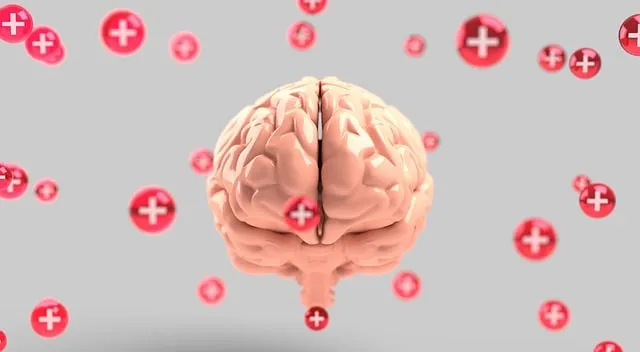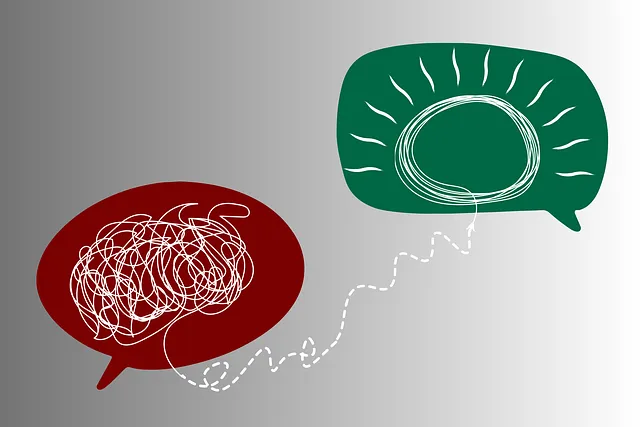Castle Rock Kaiser Permanente Psychiatry emphasizes group dynamics in their patient care, offering group therapy sessions that foster emotional healing through support and open dialogue. Facilitators play a crucial role in creating safe spaces, encouraging active participation, and developing coping strategies while contributing to the Mental Wellness Podcast Series. Success relies on engaging activities, clear ground rules, trauma-supportive practices, and evaluation techniques, ultimately enhancing mental wellness outcomes for participants.
Explore effective mental wellness group facilitation techniques at Castle Rock Kaiser Permanente Psychiatry. This comprehensive guide delves into the dynamics of group therapy, highlighting essential roles and responsibilities for facilitators. Learn engaging strategies to draw participants into productive sessions while fostering a safe, supportive environment. Discover evaluation techniques to measure group success and enhance patient outcomes in this specialized psychiatry setting.
- Understanding Mental Wellness Group Dynamics at Castle Rock Kaiser Permanente Psychiatry
- Essential Roles and Responsibilities of a Group Facilitator
- Engaging Participants: Strategies for Effective Group Sessions
- Creating a Safe and Supportive Environment in the Psychiatry Setting
- Measuring Success: Evaluation Techniques for Mental Wellness Groups
Understanding Mental Wellness Group Dynamics at Castle Rock Kaiser Permanente Psychiatry

At Castle Rock Kaiser Permanente Psychiatry, understanding mental wellness group dynamics is a cornerstone of their approach to patient care. Group therapy sessions create a unique environment where individuals can navigate emotional healing processes together, fostering a sense of community and support. Facilitators play a crucial role in guiding these interactions, ensuring every member feels heard and valued. Through structured activities and open discussions, they help participants develop essential coping strategies and build meaningful connections.
The mental wellness coaching programs development at Castle Rock Kaiser Permanente Psychiatry leverages the power of group dynamics to enhance individual growth. By facilitating these groups, professionals not only support emotional healing but also contribute to the production of a comprehensive Mental Wellness Podcast Series. This initiative aims to capture diverse perspectives and experiences within the therapeutic setting, providing valuable insights for those seeking mental wellness resources.
Essential Roles and Responsibilities of a Group Facilitator

The role of a group facilitator is multifaceted and crucial in fostering a supportive environment for mental wellness discussions. At Castle Rock Kaiser Permanente psychiatry, facilitators serve as guiding lights, ensuring every member feels heard and valued. Their primary responsibility is to create a safe space where individuals can share their experiences and learn from one another, cultivating a sense of community and collective understanding.
Effective facilitators possess excellent communication skills, enabling them to navigate diverse perspectives and maintain open dialogue. They facilitate active participation by encouraging engagement, promoting self-reflection, and fostering inner strength development. Moreover, they play a vital role in risk management planning for mental health professionals, ensuring the well-being of both the facilitators and participants while facilitating sensitive topics. This approach not only enhances self-esteem improvement but also creates a resilient group dynamic, ultimately contributing to positive mental health outcomes.
Engaging Participants: Strategies for Effective Group Sessions

Engaging participants actively is key to successful mental wellness group facilitation. To foster a dynamic and beneficial environment at Castle Rock Kaiser Permanente psychiatry’s Stress Management Workshops Organization, utilize icebreakers that encourage interaction from the start. These can be as simple as sharing favorite coping mechanisms or introducing themselves through unique stories related to their mental health journeys. This not only helps participants feel more comfortable but also establishes a sense of community.
During sessions, facilitate open discussions and actively listen to everyone’s perspectives. Recognize and validate different experiences, fostering an inclusive atmosphere where individuals feel safe to explore and express their inner strength development. Incorporate interactive activities, such as group exercises or role-playing scenarios, that align with the workshop’s themes. By doing so, participants become active contributors, enhancing learning and ensuring the session remains engaging and relevant throughout.
Creating a Safe and Supportive Environment in the Psychiatry Setting

At Castle Rock Kaiser Permanente psychiatry, creating a safe and supportive environment is paramount for effective group facilitation. This begins with establishing ground rules that foster open communication, respect, and confidentiality. Facilitators should encourage active participation while ensuring every individual feels heard and validated, regardless of their experiences or backgrounds. A welcoming atmosphere, where members feel comfortable sharing their stories without fear of judgment, is crucial for building trust within the group.
Trauma-supportive practices, such as trauma-informed care principles, can significantly enhance this setting. By recognizing and addressing potential triggers, facilitators can provide anxiety relief and promote healing for those with traumatic histories. This approach not only supports mental wellness but also enables individuals to navigate their emotions in a safe space, ultimately enhancing the overall effectiveness of group therapy sessions at Castle Rock Kaiser Permanente.
Measuring Success: Evaluation Techniques for Mental Wellness Groups

Measuring success in mental wellness groups is an integral part of ensuring effective facilitation and positive outcomes for participants. Evaluation techniques play a pivotal role in understanding what’s working and where improvements can be made. At Castle Rock Kaiser Permanente psychiatry, professionals often employ a combination of methods to assess group progress. One powerful tool is the Mental Wellness Journaling Exercise, which encourages members to reflect on their experiences, track their emotional well-being, and identify areas for personal growth—all valuable insights for facilitators.
Additionally, self-care practices can be measured through regular check-ins and anonymous feedback surveys, allowing participants to openly discuss challenges and successes related to coping strategies, stress management, and positive thinking. By integrating these Self-Care Practices into group dynamics, facilitators gain a deeper understanding of the collective progress and individual transformations taking place within the supportive environment.
In conclusion, facilitating mental wellness groups at Castle Rock Kaiser Permanente psychiatry requires a blend of understanding group dynamics, engaging participants through diverse strategies, and cultivating a safe environment. Effective facilitators play pivotal roles in enhancing well-being, as measured by evaluation techniques that ensure success. By adopting these techniques, facilitators can create supportive spaces that foster meaningful connections and positive change within the Castle Rock Kaiser Permanente psychiatry setting.






